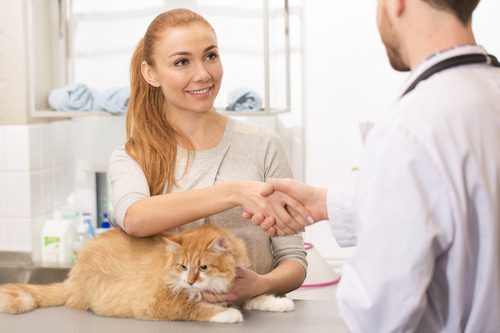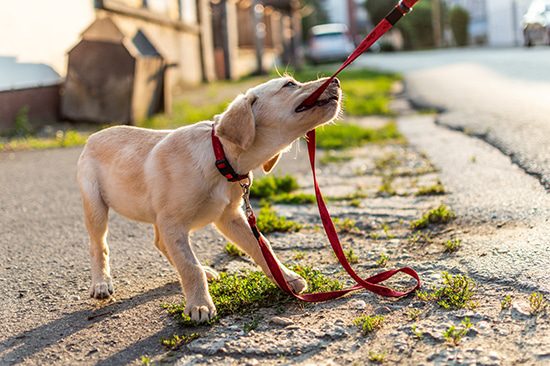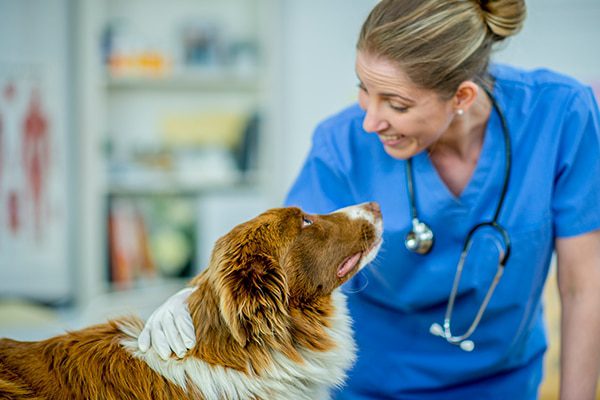FHO Surgery in Cats
When a cat experiences hip pain that limits movement and quality of life, one surgical option often recommended is a femoral head ostectomy, or FHO surgery. While the name might sound intimidating, this procedure is designed to reduce pain and restore mobility in cats suffering from certain hip conditions. Whether your cat has been diagnosed with a dislocated hip, hip dysplasia, or another orthopedic issue, understanding FHO surgery can give you more confidence in what comes next. In this blog, we’ll explore what FHO surgery in cats involves, why it’s done, how it helps, and what to expect during recovery. If you’re in the Clifton Park, NY area and think your cat might benefit from this procedure, reach out to Cornerstone Veterinary Hospital of Clifton Park at (518) 383-6254.

What Is FHO Surgery in Cats?
FHO surgery in cats involves the removal of the femoral head, which is the ball part of the hip joint. By removing this portion of the bone, the painful bone-on-bone contact is eliminated. Instead, a false joint forms in its place, made up of scar tissue and surrounding muscles. While this may sound like a significant change, many cats recover well and return to a relatively normal range of motion over time.
This procedure is often recommended for cats who cannot benefit from more involved surgical repair due to cost, age, size, or the nature of their condition. Since cats are relatively lightweight and agile, they tend to adapt well after surgery. FHO surgery in cats is commonly performed for long-term relief of pain caused by trauma or congenital joint issues.
Conditions That May Require FHO Surgery
There are several conditions where FHO surgery in cats becomes a preferred or necessary option. Each condition presents differently, but all can severely limit mobility and comfort without intervention.
Hip Dysplasia
Hip dysplasia is a condition where the ball and socket of the hip joint do not fit together correctly. Over time, this causes joint instability, inflammation, and eventually arthritis. FHO surgery in cats can remove the source of discomfort and allow for improved function without relying on a malformed joint.
Hip Luxation (Dislocation)
A traumatic injury, such as being hit by a car or falling from a height, can lead to hip dislocation. When a hip dislocation cannot be successfully reduced (put back into place) or recurs frequently, FHO surgery is often the next best step.
Femoral Head Fracture
If the head of the femur is fractured and cannot be repaired with pins or plates, surgical removal may be the only viable treatment. FHO surgery in cats allows for long-term pain management when traditional bone healing isn’t possible.
What to Expect Before Surgery
Your veterinarian will perform a full physical exam and likely recommend X-rays to assess the extent of joint damage. Bloodwork and other pre-anesthetic testing may also be required to ensure your cat is a safe candidate for surgery. At Cornerstone Veterinary Hospital of Clifton Park, your cat’s comfort and safety are top priorities, and preoperative planning is essential.
Once FHO surgery in cats is confirmed as the best option, your veterinary team will walk you through the timeline, expected outcomes, and home care instructions. Preparing your cat’s recovery space ahead of time can help ease the transition once they return home.
The FHO Surgical Procedure
FHO surgery in cats is typically performed under general anesthesia. Your veterinarian will make an incision over the hip joint, carefully expose the femoral head, and then remove it with precision. Once the femoral head is removed, the incision is closed, and your cat will be closely monitored during recovery. Because the joint is no longer intact, the surrounding muscles must compensate for movement. Over time, scar tissue forms a pseudo-joint, allowing for mobility with reduced or eliminated pain.
Recovery After FHO Surgery in Cats
Post-operative care plays a major role in how successful FHO surgery is for your cat. While many cats bounce back quickly, full recovery can take several weeks and involves gradual rehabilitation.
Pain Management and Restricted Activity
Your cat will be prescribed pain medication and possibly anti-inflammatory drugs to keep them comfortable during the early healing stages. For the first 10 to 14 days, they should be confined to a quiet, safe area to limit jumping or rough movement.
Encouraging Mobility
Once the incision has healed, gentle movement is encouraged to prevent stiffness and help the muscles build strength. Your vet may recommend specific at-home exercises or refer you to a veterinary rehabilitation specialist. Controlled activity such as slow walking or gentle play can support the formation of a functional false joint.
Follow-Up Care
Regular follow-up visits are important to ensure your cat is healing properly. If you notice signs like swelling, discharge, or your cat refusing to bear weight on the leg after the first few weeks, it’s time to check in with your veterinarian.
Long-Term Outlook for Cats After FHO Surgery
Most cats that undergo FHO surgery go on to live active, comfortable lives. They may not regain the full range of motion they had before their hip problem began, but they typically experience significant pain relief and improved mobility.
How Well Do Cats Adapt?
Cats are especially good candidates for FHO surgery because of their size and agility. They rely less on the kind of hip stability that larger animals need, and they’re highly adaptable when it comes to using the affected limb again.
Will My Cat Limp?
Some cats may show a mild limp even after they’ve fully healed, but this often doesn’t affect their ability to run, jump, and play. Over time, the muscles and scar tissue stabilize the joint well enough to support a comfortable, active lifestyle.
Choosing the Right Team for FHO Surgery in Cats
Not every veterinary clinic performs orthopedic procedures, so it’s important to work with a team experienced in managing surgical cases from start to finish. At Cornerstone Veterinary Hospital of Clifton Park, FHO surgery in cats is approached with precision, compassion, and attention to detail. Every surgical patient receives individualized care before, during, and after the procedure to help ensure the best possible outcome.
If you’re in the Clifton Park area and have concerns about your cat’s mobility or hip pain, give us a call at (518) 383-6254. Our team can help determine whether FHO surgery in cats is the right option for your pet, and we’re happy to answer any questions you may have along the way.
Recent Posts
10 Tips for New Puppy Care in Clifton Park, NY
10 Tips for New Puppy Care in Clifton Park, NY There is nothing quite like the excitement…
3 Significant Benefits of Spaying or Neutering Your Pet in Clifton Park, NY
3 Significant Benefits of Spaying or Neutering Your Pet in Clifton Park, NY We recommend spay and…
- « Previous
- 1
- …
- 24
- 25
- 26
About Us
Originally opened as Animal Care Hospital by Dr. Mark Johnston in 1989, the hospital became Cornerstone Veterinary Hospital in 2015 when it was purchased by Drs. Alan and Lisa Knott. The name 'Cornerstone' holds a special place in their hearts, representing not only their Christian faith but also their commitment to being the cornerstone of the community in which they practice. As a family-owned and operated practice, every pet is treated as part of the family, ensuring they receive the highest standard of care. The team at Cornerstone Veterinary Hospital is dedicated to building lasting relationships with clients and their beloved pets, striving to be the cornerstone of the community in which they practice.


